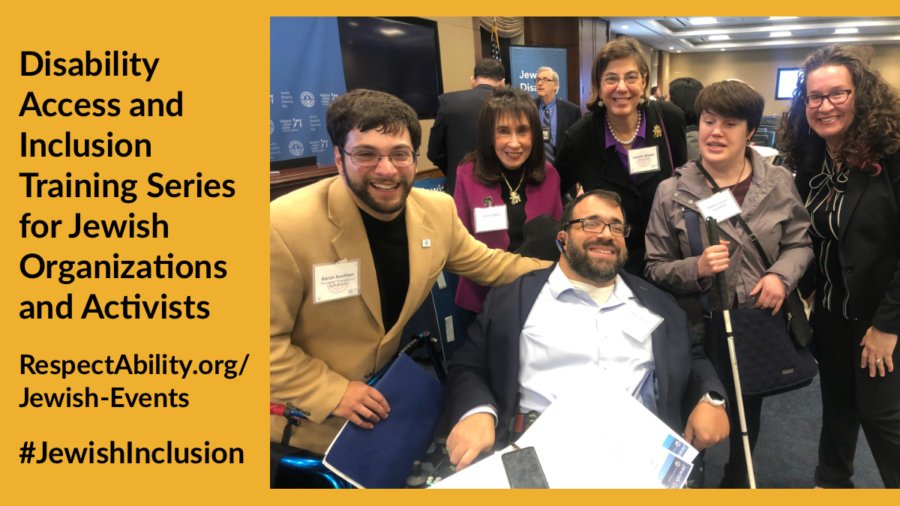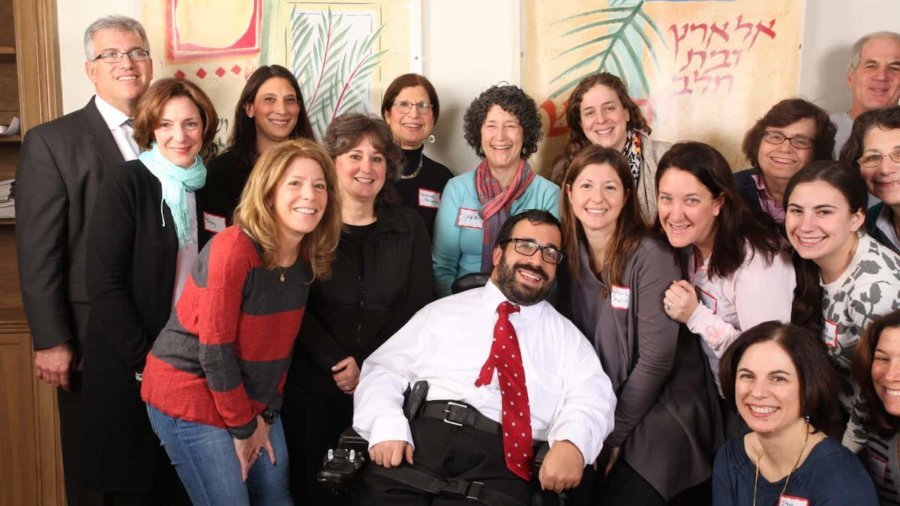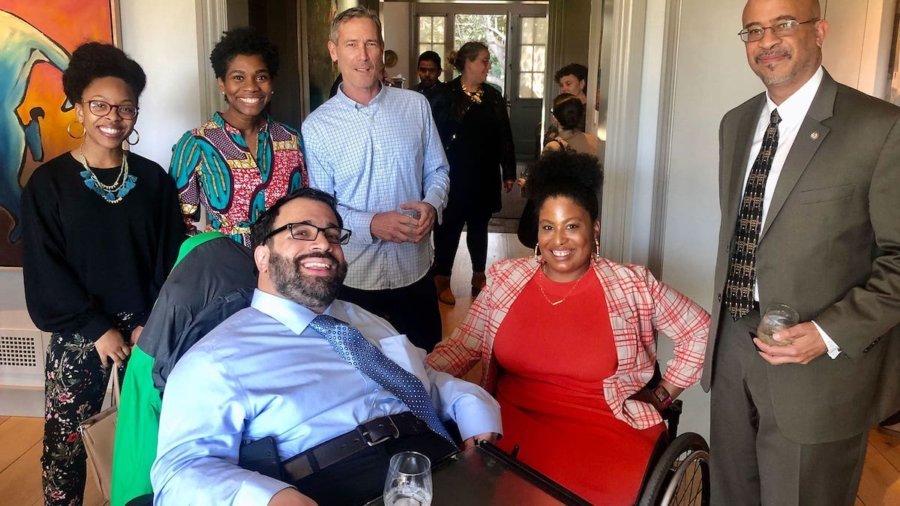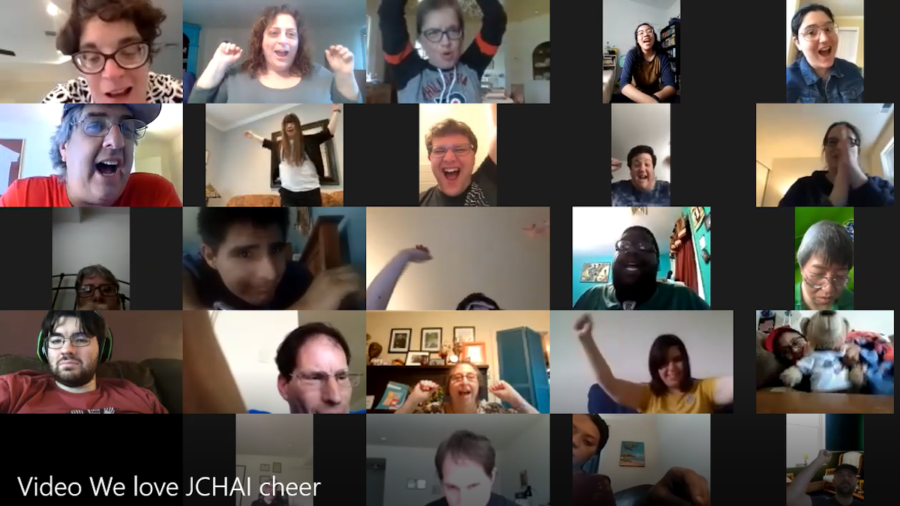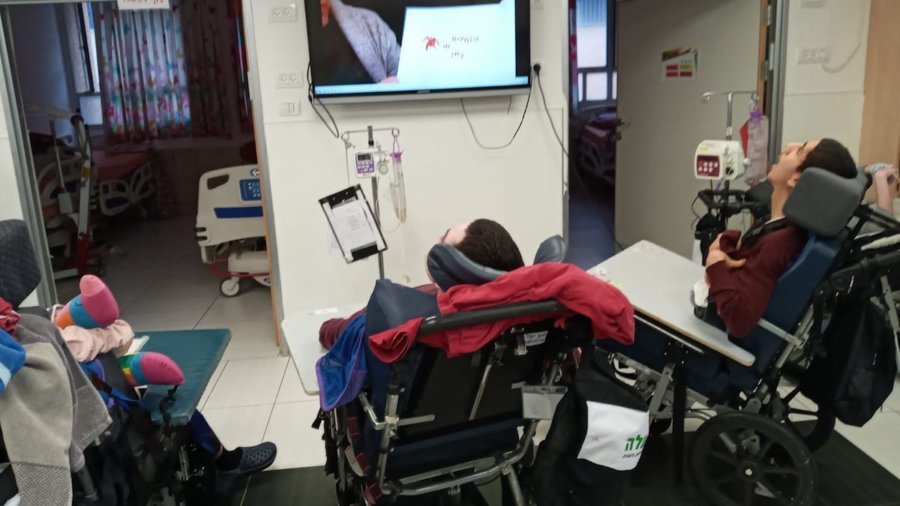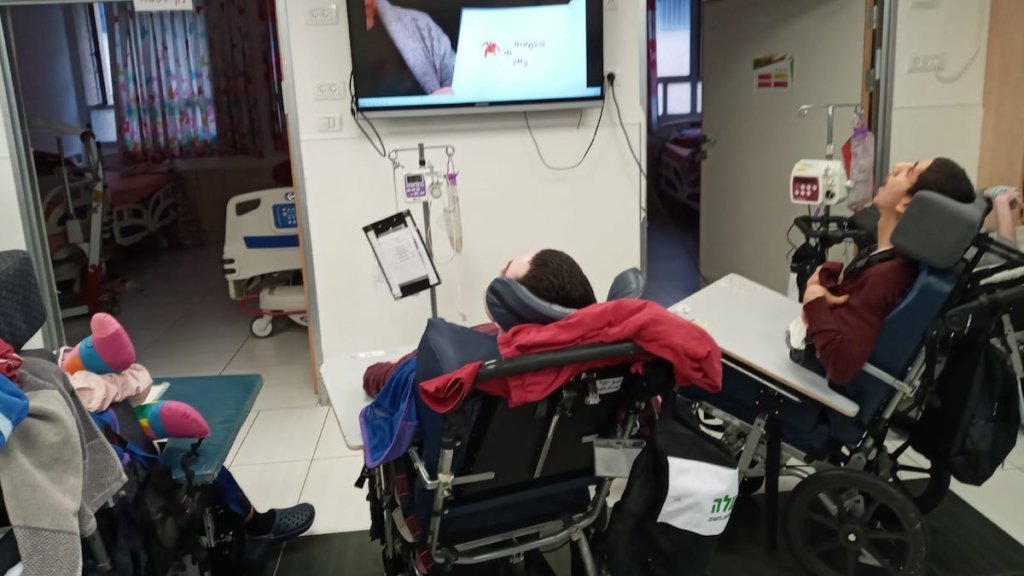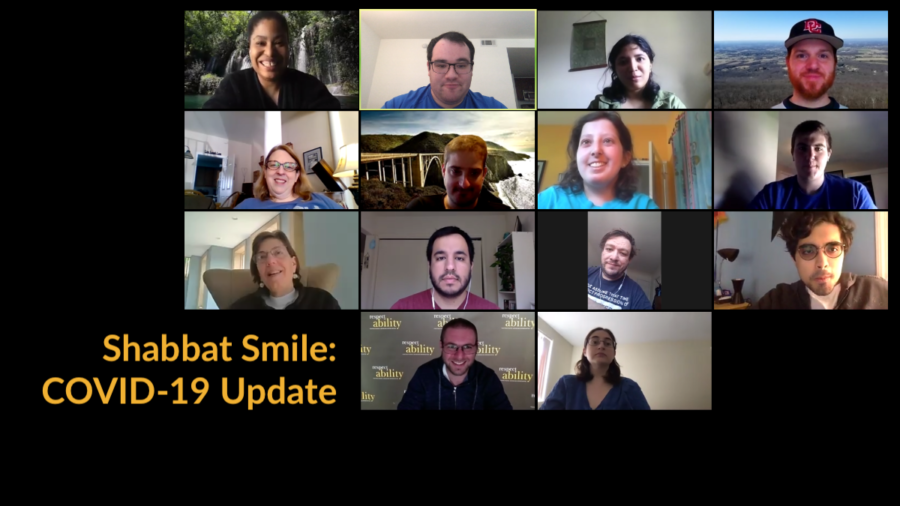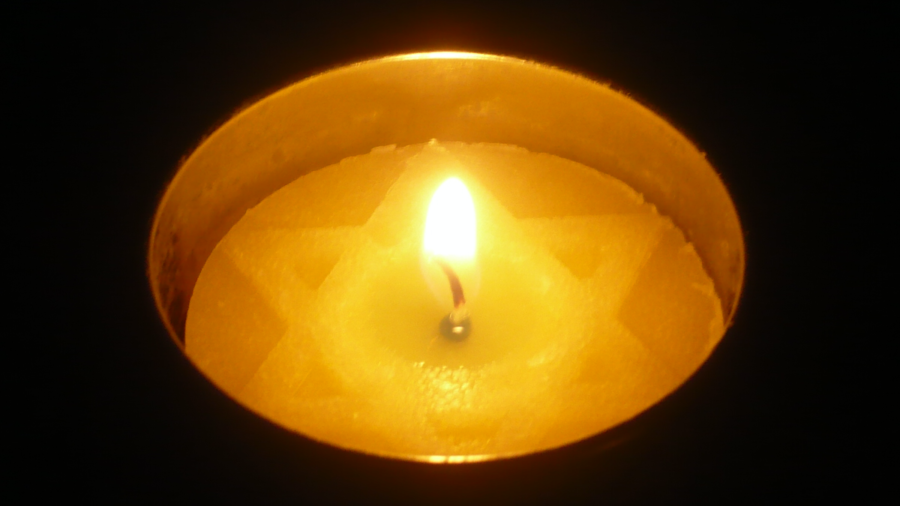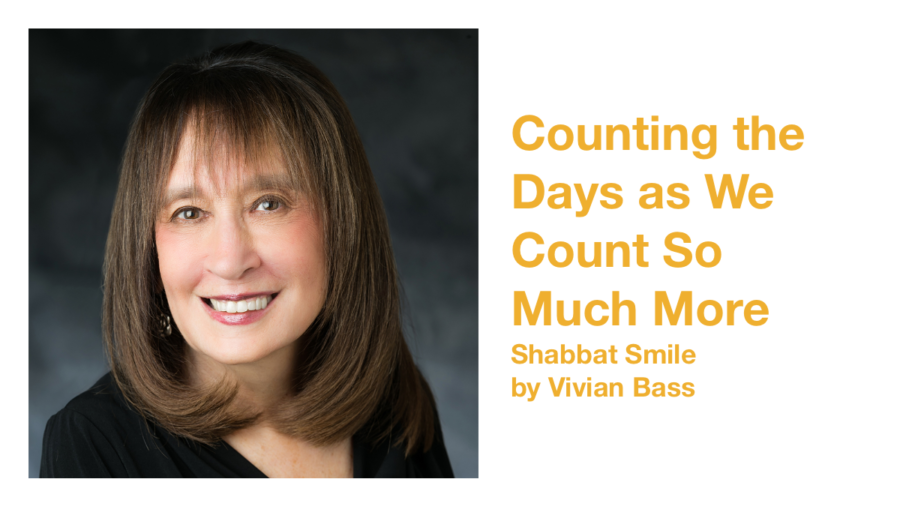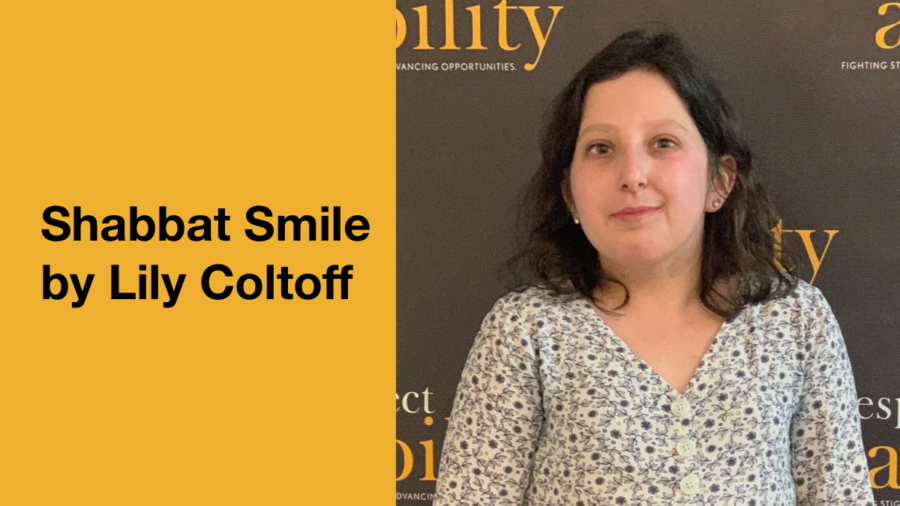I hope that you are staying safe and healthy. Before I begin our weekly exploration of Jewish disability inclusion, I must begin the Shabbat Smile by noting that this is a gut-wrenching time in our nation. We are all dealing with the COVID-19 pandemic and massive job loss challenges. Now the uprisings taking place across America have illuminated the impact of racism on society. The recent murders of George Floyd by Minneapolis police and Breonna Taylor by Louisville Metro police are a reminder that key parts of our criminal justice system are broken. The false accusal of two Black men for the drowning of Alejandro Ripley, a nonverbal 9-year-old with Autism, offers another example of the harmful impact of discrimination. [continue reading…]
Faith and Spirituality
Looking for Hope? Meet Matan Koch
Question: What do Shavuot (Shavuos) and COVID-19 have in common? Answer: The call for faith, prayer, and hope . . . and the comfort of cheesy (or non-cheesy) blintzes (or gluten-free blintzes). It is also said that if you put two blintzes side by side on your plate, then you have the visual image of a Torah. Nice, right? Experiential learning. [continue reading…]
Disability Leader Discovers New Role During COVID-19 Crisis
With every day rolling into the next, it’s nice to know that in the U.S. the calendar marks that we have a long weekend. Memorial Day – America’s Yom Ha’Zikaron – is a day we set aside to remember all our military personnel who died while serving in the U.S. military, helping to ensure America’s four freedoms; freedoms that FDR articulated in his transformative State of the Union Address in January of 1941:
- Freedom of Speech
- Freedom to Worship
- Freedom from Want; and, last but so relevant today
- Freedom from Fear.
Yes, we underscore that FDR should have – and could have – done more to save countless lives during the Holocaust. Yet is also said that his powerful “Four Freedoms” speech and vision transformed our nation and the world. He projected the idea of all Americans pulling together (and needing to continue to do so) to face a moment of crisis.
Here we are, yet again, in a monumental moment of crisis. An ongoing moment where three of these four freedoms are in jeopardy: our freedom to worship remains remote and virtual; close to 39 million Americans’ freedom from want is now, at best, on hold; and freedom from fear – fear of the virus, for every inhabitant worldwide, awaiting a vaccine. [continue reading…]
Zoom into JCHAI: by Judith Creed
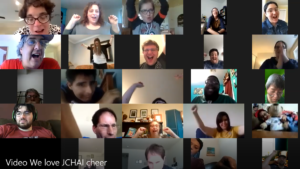 For years, JCHAI’s award-winning Transitions program has provided young adults with developmental disabilities the opportunity to develop social networks while learning skills to transition to living and working in the community. Our in-person classes and outings brought people together to practice life-skills while socializing with friends. The pandemic and current stay-at-home orders have made it impossible to continue our in-person sessions, leaving many of our participants feeling isolated and bored. JCHAI wanted to offer a way for people to continue socializing while learning and practicing their independent living skills, and ZOOM into JCHAI was born! [continue reading…]
For years, JCHAI’s award-winning Transitions program has provided young adults with developmental disabilities the opportunity to develop social networks while learning skills to transition to living and working in the community. Our in-person classes and outings brought people together to practice life-skills while socializing with friends. The pandemic and current stay-at-home orders have made it impossible to continue our in-person sessions, leaving many of our participants feeling isolated and bored. JCHAI wanted to offer a way for people to continue socializing while learning and practicing their independent living skills, and ZOOM into JCHAI was born! [continue reading…]
COVID-19: A Master Class in Disability Inclusion: by Elie Klein
As COVID-19 continues to claim the lives of multitudes around the globe, we have responded with serious introspection and copious goodwill, transforming into the very best versions of ourselves – more grateful, helpful, compassionate and empathetic than ever before. Surprisingly, we have also effectively proven that we possess the skills, resources and creativity to remove all communal roadblocks for individuals with disabilities and that a truly inclusive society is entirely within our reach.
One of the most obvious examples is the ease with which our world went virtual. In a matter of days, everything from board meetings to birthday parties were being attended via video conference, as people of all ages began engaging online, and we quickly learned that virtual participation was considerably more effective than we once thought. [continue reading…]
COVID-19 Crisis and People with Disabilities
We all see the news – the deaths, the job losses, the pain. It’s all very hard on our families, communities and even our souls. But what is even more important is the tremendous effort to save lives. Some of this, like the heroic work of first responders, makes the news. But much of the quiet battle does not. I’d love to share with you some important work that RespectAbility has accomplished in conjunction with our allies in the Jewish and disability communities, and some predictions we are offering about the future.
The first phase of this crisis in the United States found us at RespectAbility: [continue reading…]
72 Years of Making Israel Increasingly More Accessible for Everyone: by Howard Blas
 Founded in 1948, Israel’s accessibility for people with disabilities was not a top priority. I recall several almost comical incidents from nearly 20 years ago when helping people with disabilities navigate Israel. On one group trip, while pushing 20-something Rivka in a wheelchair in northern Israel, the sidewalk abruptly ended. We carried her in the wheelchair to where sidewalk eventually continued. In the Old City, near the Kotel, I asked soldiers where was the accessible path. They lifted Rivka up the steps in her wheelchair.
Founded in 1948, Israel’s accessibility for people with disabilities was not a top priority. I recall several almost comical incidents from nearly 20 years ago when helping people with disabilities navigate Israel. On one group trip, while pushing 20-something Rivka in a wheelchair in northern Israel, the sidewalk abruptly ended. We carried her in the wheelchair to where sidewalk eventually continued. In the Old City, near the Kotel, I asked soldiers where was the accessible path. They lifted Rivka up the steps in her wheelchair.
Fortunately, Israel today is fairly accessible and straightforward: from riding buses, to shopping in grocery stores, to studying in university. Modern Israel has become a well-known destination for accessible travel.
Israel’s road to accessibility has been a journey. Physical accessibility doesn’t happen automatically; nor does shifting attitudes toward people with disabilities and accessibility. [continue reading…]
Never Again. Valuing Every Life Equally.
 Today as we observe Yom HaShoah, Holocaust Remembrance Day, we think of the 6 million Jews and 5 million others, including people with disabilities, who were targeted for extermination in Nazi Germany. It is easy to delude ourselves into thinking that all of the perpetrators of this horrific genocide were simply uniquely evil, and that somehow that generation of Germans disproportionately reflected the worst of humanity. And yet, that’s really not true, is it? Hitler was evil. Eichmann and the Nazi Party’s leaders were evil. But we must ask ourselves how they managed to sway a population of generally decent people into at best ignoring – and in many cases participating in – the mass destruction of fellow humans. [continue reading…]
Today as we observe Yom HaShoah, Holocaust Remembrance Day, we think of the 6 million Jews and 5 million others, including people with disabilities, who were targeted for extermination in Nazi Germany. It is easy to delude ourselves into thinking that all of the perpetrators of this horrific genocide were simply uniquely evil, and that somehow that generation of Germans disproportionately reflected the worst of humanity. And yet, that’s really not true, is it? Hitler was evil. Eichmann and the Nazi Party’s leaders were evil. But we must ask ourselves how they managed to sway a population of generally decent people into at best ignoring – and in many cases participating in – the mass destruction of fellow humans. [continue reading…]
Counting the Days as We Count So Much More
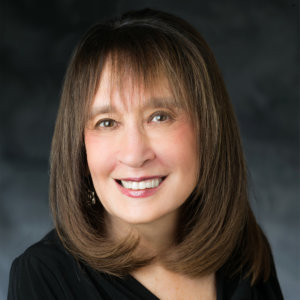 During the 49-day `Counting of the Omer,’ we traditionally retrace our ancestors’ seven-week spiritual journey from Exodus to Sinai each evening. Typically together, we count the days until the 50th day, Shavuot, when we commemorate and joyfully celebrate the Giving of the Torah at Sinai. This year, however, in a manner unprecedented in a century, we are additionally ‘counting days’ in a most precarious, daunting, and totally unfamiliar manner. As we hold our dear families close to our hearts and close in our homes we count the days – yet without any tangible, identified end to the nightmare of this cruel and excruciating pandemic.
During the 49-day `Counting of the Omer,’ we traditionally retrace our ancestors’ seven-week spiritual journey from Exodus to Sinai each evening. Typically together, we count the days until the 50th day, Shavuot, when we commemorate and joyfully celebrate the Giving of the Torah at Sinai. This year, however, in a manner unprecedented in a century, we are additionally ‘counting days’ in a most precarious, daunting, and totally unfamiliar manner. As we hold our dear families close to our hearts and close in our homes we count the days – yet without any tangible, identified end to the nightmare of this cruel and excruciating pandemic.
For how many days…or months will we be counting until we return to joyous and fulfilling lives of inclusion within the fabric of our Jewish communities? And even when we gradually do cease counting the horrid days of the past and begin a gradual return to a semblance of normalcy, we will forever be counting the losses of beloved family members, friends, colleagues, synagogue congregants and neighbors of all ages, and cherishing the lives lost among the heroic frontline workers, both familiar and unfamiliar. [continue reading…]
Mah nishtanah ha’Pesach ha’zeh mi’kol ha’leylot
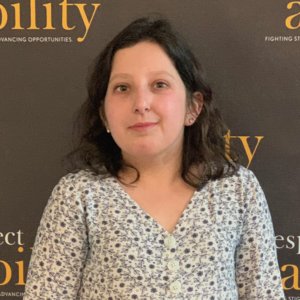 Traditionally, during the Passover seder, we ask four questions, starting with the well-known refrain “mah nishtanah ha’layla ha’zeh mi’kol ha’leylot: why is this night different from all other nights?” This year, there are far more than the traditional four answers to this query.
Traditionally, during the Passover seder, we ask four questions, starting with the well-known refrain “mah nishtanah ha’layla ha’zeh mi’kol ha’leylot: why is this night different from all other nights?” This year, there are far more than the traditional four answers to this query.
We are, right now, living in a time of challenge and hardship, a new “mitzraym” or narrow place for all of us, with a deliverance that will come not just before dinner served, but at an uncertain time in the future. We don’t know when we will be fully free of coronavirus. We do know that we can each be a part of the redemption of each other’s challenges, especially those faced by people with disabilities, and by others who, due to income or otherwise, lack adequate housing and food. It is a time when our global community, physically distant, is called to come together in spirit, to unify in an expression of our gratitude for what we have, and to support those who need it most. [continue reading…]


